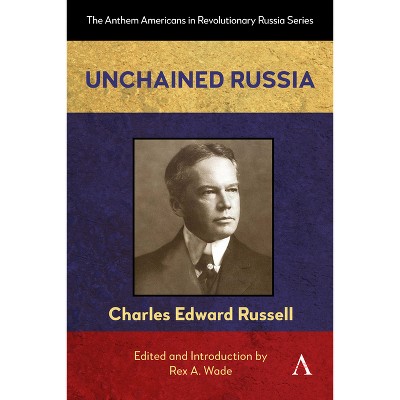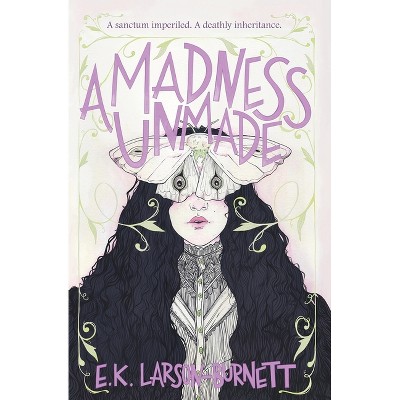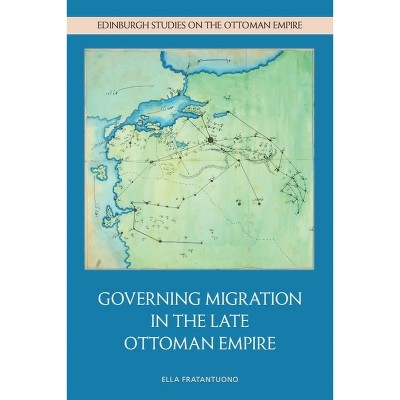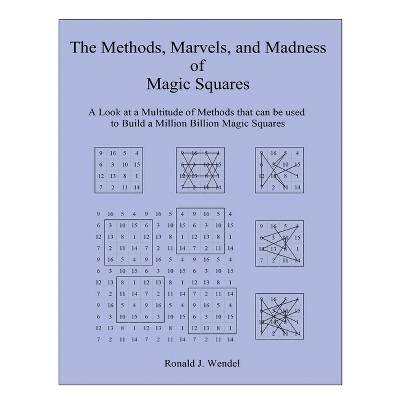Sponsored

Madness Unchained - by Lee Fratantuono 2 (Paperback)
$68.99
In Stock
Eligible for registries and wish lists
Sponsored
About this item
Highlights
- The book aims at providing a coherent guide to the entirety of Virgil's Aeneid, with analysis of every scene and, in some cases, every line of crucial passages.
- About the Author: Lee Fratantuono is William Francis Whitlock Professor of Latin at Ohio Wesleyan University.
- 448 Pages
- Non-Classifiable
Description
About the Book
The book aims at providing a coherent guide to the entirety of Virgil's Aeneid, with analysis of every scene and, in some cases, every line of crucial passages. The book tries to provide a guide to the vast bibliography and scholarly apparatus that has grown around Virgil stud...Book Synopsis
The book aims at providing a coherent guide to the entirety of Virgil's Aeneid, with analysis of every scene and, in some cases, every line of crucial passages. The book tries to provide a guide to the vast bibliography and scholarly apparatus that has grown around Virgil studies (especially over the past century), and to offer some critical study of what Virgil's purpose and intent may have been in crafting his response to Augustus' political ascendancy in Rome, Rome's history of near-constant civil strife, and the myths of Rome's origins and their conflicting Trojan, Greek, and native Italian origins.Review Quotes
a wonderful book, because with its well-versed learning in all aspects of Vergilian scholarship it inspires its readers to think independently.
At last, a commentary on the Aeneid that doesn't need more decoding devices than Virgil's poem! Dr. Fratantuono's book stands apart for its adherence to a sensible, and yet profound, analysis of a poem that too often in the last several decades has been the testing ground for any number of new approaches to literary criticism. F begins with a heartfelt lament on the way Books VII-XII have been practically ignored in the curricula of American Classical education at all levels. His commentary attempts to correct this by paying due attention to what V himself considered to be the "greater part" of his poem. One of my favorite features of F's book is the way the author weaves into his commentary the relevant passages from the poem, and, in so doing, keeps the commentary focused strictly on the passages. The translations, which by F's own admission, do not aspire to any 'literary greatness, ' are still some of the best I have ever read. (Perhaps F's description of all translations of the Aeneid as 'betrayals' of the original Latin poem is in fact a tad too harsh.) Like V, who did not compose his opus in a 'linear fashion' but who worked on individual sections as the spirit moved him, F chose to write a commentary which, while remarkably coherent, can nevertheless be read with profit in installments and in whatever order the reader selects. One thing is for sure: whatever part of the commentary a person reads, it soon becomes clear that these are the musings of a scholar who, through assiduous study and reflection, has an ear for Virgil and who can, at all times, see a passage within the larger themes of the poem. While not new, F's view, that the Aeneid embodies a 'profound reflection on the nature of the Augustan regime in Rome, ' is presented in ways that are fresh and not at all hackneyed. Readers of all ages will profit from F's book. It will doubtless be welcomed by secondary school instructors, who will find in the commentary a perfect complement to their work in the classroom with the La
At last, a commentary on the Aeneid that doesn't need more decoding devices than Virgil's poem! Dr. Fratantuono's book stands apart for its adherence to a sensible, and yet profound, analysis of a poem that too often in the last several decades hasbeen the testing ground for any number of new approaches to literary criticism. F begins with a heartfelt lament on the way Books VII-XII have been practically ignored in the curricula of American Classical education at all levels. His commentary attemptsto correct this by paying due attention to what V himself considered to be the greater part of his poem. One of my favorite features of F's book is the way the author weaves into his commentary the relevant passages from the poem, and, in so doing, keeps the commentary focused strictly on the passages. The translations, which by F's own admission, do not aspire to any 'literary greatness, ' are still some of the best I have ever read. (Perhaps F's description of all translations of the Aeneid as 'betrayals' of the original Latin poem is in fact a tad too harsh.) Like V, who did not compose his opus in a 'linear fashion' but who worked on individual sections as the spirit moved him, F chose to write a commentary which, while remarkably coherent, ca
Fratantuono's detailed, image-by-image and often even line-by-line examination is the most thorough analysis of The Aeneid to appear in decades. It has the great virtue of not shying away from the most difficult cruces in the long interpretative history of the work, and it offers fresh insights into many of them. The readings he offers of individual passages are frequently not only provocative but also suggestive of further possibilities for extended exploration. In short, this is a book that will challenge many of us to rethink our presuppositions about many an aspect of Virgil's epic.
Madness Unchained is truly a stunning achievement! Fratantuono's engaging commentary on Virgil's Aeneid, written in lucid and economical prose, has something to offer everyone, from novice readers of the epic to seasoned, veteran scholars. There is much to glean from these pages, whether one dips in to read the author's comments on individual scenes or uses the commentary to accompany a reading of Virgil's epic in its entirety. One of Fratantuono's primary contributions to Virgilian scholarship is the way in which he treats the epic as a whole, illustrating brilliantly that the poem is more than merely a sum of its individual parts. The reader will appreciate Fratantuono's close and perceptive reading of the epic together with his masterful and authoritative survey of existing scholarship. This commentary will prove itself as a worthy sourcebook for generations of Virgil readers to come.
Summing Up: Recommended. Lower-/upper-division undergraduates.
About the Author
Lee Fratantuono is William Francis Whitlock Professor of Latin at Ohio Wesleyan University.Dimensions (Overall): 8.99 Inches (H) x 6.32 Inches (W) x 1.31 Inches (D)
Weight: 1.51 Pounds
Suggested Age: 22 Years and Up
Number of Pages: 448
Genre: Non-Classifiable
Publisher: Lexington Books
Format: Paperback
Author: Lee Fratantuono 2
Language: English
Street Date: July 1, 2007
TCIN: 1006378327
UPC: 9780739122426
Item Number (DPCI): 247-09-7025
Origin: Made in the USA or Imported
If the item details aren’t accurate or complete, we want to know about it.
Shipping details
Estimated ship dimensions: 1.31 inches length x 6.32 inches width x 8.99 inches height
Estimated ship weight: 1.51 pounds
We regret that this item cannot be shipped to PO Boxes.
This item cannot be shipped to the following locations: American Samoa (see also separate entry under AS), Guam (see also separate entry under GU), Northern Mariana Islands, Puerto Rico (see also separate entry under PR), United States Minor Outlying Islands, Virgin Islands, U.S., APO/FPO
Return details
This item can be returned to any Target store or Target.com.
This item must be returned within 90 days of the date it was purchased in store, shipped, delivered by a Shipt shopper, or made ready for pickup.
See the return policy for complete information.
Trending Poetry

Bestseller
$22.89
was $24.48 New lower price
Buy 2, get 1 free select books
4.6 out of 5 stars with 52 ratings




$9.85 - $23.09
MSRP $15.99 - $32.99
Buy 2, get 1 free select books
4.8 out of 5 stars with 147 ratings

$20.58
MSRP $30.00
Buy 2, get 1 free select books
5 out of 5 stars with 6 ratings





